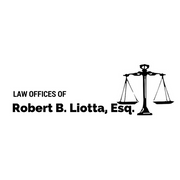3 Duties of an Attorney During Estate Administration

During the estate planning process, you will select an executor. It’s a multi-faceted and complicated role, involving paying taxes and handling Pennsylvania’s probate proceedings. Many appoint an attorney to assist in the administration duties, considering the complex and time-consuming financial and legal responsibilities.
How Attorneys Help During the Estate Administration Process
1. Opening the Estate
Upon passing, the original copy of the deceased’s will must be submitted to the probate court in the county in which they lived. Pennsylvania does not require a hearing to ensure that the will is valid and legally binding but individuals who wish to contest the will may do so although grounds to set aside a will are limited and rarely found.
To open the estate, the executor completes legal documents that will notify the court and the relevant parties of the subject’s passing.
There are also several types of probate in Pennsylvania that an executor will have to choose from. Probate can be a formal or informal process that goes supervised or unsupervised by the court. The decision can be a complicated one to make. An experienced estate planning attorney can advise the executor on how to proceed.
2. Managing Assets
 An inventory must be taken of the deceased’s assets, including any property that was owned. However, not all property must pass through the probate process. For example, joint tenancies with the right of survivorship don’t go through probate, but properties held in a trust do.
An inventory must be taken of the deceased’s assets, including any property that was owned. However, not all property must pass through the probate process. For example, joint tenancies with the right of survivorship don’t go through probate, but properties held in a trust do.
The executor might also have to take on financial responsibilities. This includes businesses owned by the deceased, active stocks and bonds, and income-producing properties.
The decision to buy and sell properties and businesses will have legal ramifications that an attorney can explain.
3. Paying Taxes
Unfortunately, even smaller estates are often subject to taxes that the executor must pay. The estate also needs a separate taxpayer ID that is provided by the IRS typically referred to as an EIN.
At least two tax returns must be filed. The first encompasses the earned income made by the deceased in the tax period before they passed. The second covers the income made by the estate through dividends or the sale of properties and businesses.
How and when the taxes are paid is a decision for the executor, which affects how much taxes are due. Taxes must be paid before the beneficiaries can receive any distributions from the estate.
A professional in estate planning will know how and when to file forms and pay the taxes, potentially saving the estate thousands of dollars.
Estate administration requires experience, diligence and a keen eye for detail. For over a twenty years, the residents of Lower Burrell, PA, have relied on the Law Offices of Robert B. Liotta, Esq. for their Elder law needs, including estate planning and administration. Together, you’ll create a plan that is legally binding and truly representative of your wishes. The instructions will be clear, and your family will be taken care of. For more information on their practice areas, visit their website or call (724) 334-9870.
About the Business
Have a question? Ask the experts!
Send your question

